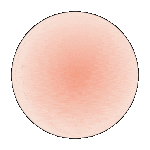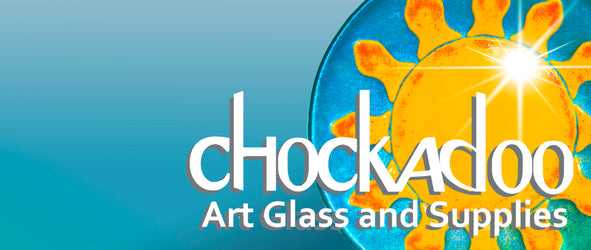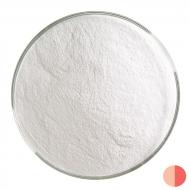
Light Pink Striker Transparent Bullseye Frit 1215
- Description
- Working Notes
-
Available in Powder, Fine and Medium grade frit and a sample size of 30grams or a 5oz Jar (141gram)
It is made from crushed, screened, and magnetically cleaned Bullseye Compatible sheet glass.
The colour of the frit in its unfired and fired states may differ greatly. In application, colour saturation may vary. Thin layers may be lighter in colour. Thicker layers may be darker and more saturated in colour.
Colours That Strike

Many glasses that Bullseye produces appear pale or even colourless in their cold form but “strike” or mature to a target colour when fired to the right temperature. These styles are marked with the symbol above.
Not recommended for Stain Glass or Mosaics as Kiln required to achieve colour shown
-
Striker
This style may not reveal (strike to) its target colour until fired.
Contains
Lead
May React With
Selenium, Sulfur
Cold Characteristics
Varies from lighter to darker; sometimes with lighter dappling in single-rolled sheets. Generally lighter and slightly more blue/pink than Cranberry Pink Transparent (001311).
Working Notes
Colour usually deepens on firing. Possible dark interface reaction with selenium and/or sulphur glasses (000137, 001122, 001125, 000124, 000125, 001137, 001437). Less viscous (softer) than most other glasses. Some gold-bearing striking glasses, like this one, should be fired with a 2-hour hold at 1225°F during the initial stages of the firing cycle. If fired without this hold, they may not strike at all, or they may strike but appear spotty and have a blue-brown cast, as opposed to the desired target colour. This full-fuse schedule effectively strikes these glasses:

*The initial rate of heat is not a critical factor in successfully striking gold-bearing glasses. Choose an initial rate of heat appropriate to the scale and design of the project that you are firing.
**Remainder of cycle depends on the thickness of the piece. Consult the Bullseye Annealing Chart. For colour-sensitive projects, we recommend testing the cycle you plan to use by fusing a small sample of a similar setup in the same kiln as the project to best predict final color results.Frits are versatile and can be used in:
- Pate de verre and kilncasting
- Kilnforming, including glass sketching and painting with light techniques
- Torchworking and blowing, to create colours and patterns on surfaces.




